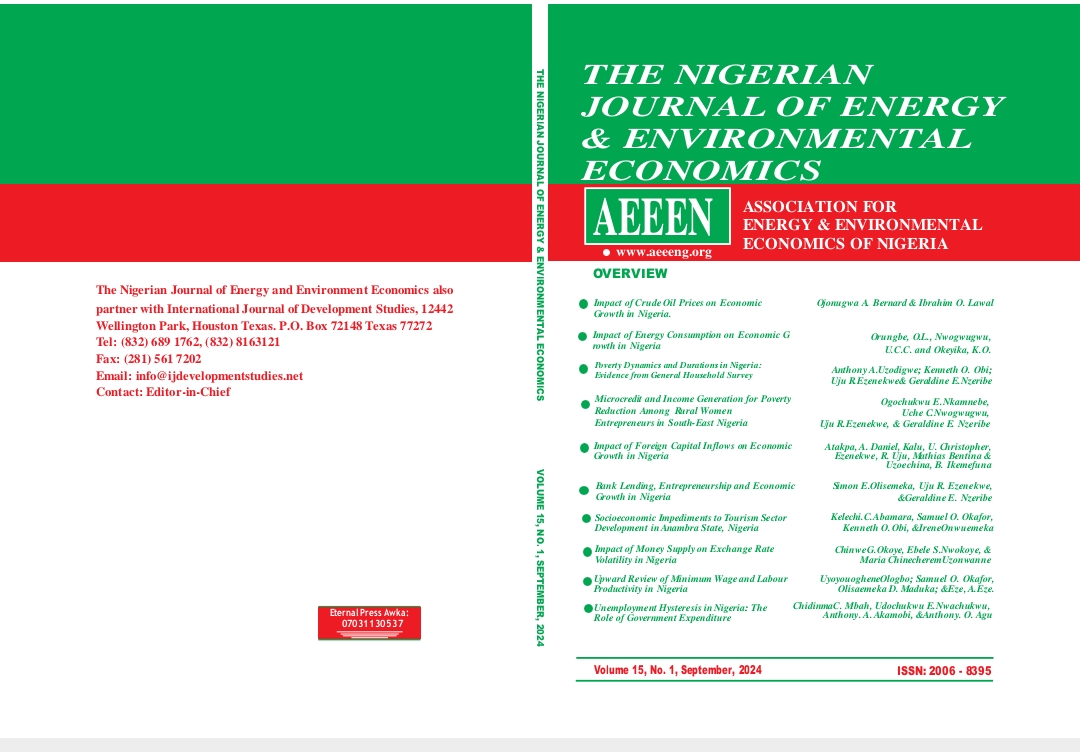IMPACT OF CRUDE OIL PRICES ON ECONOMIC GROWTH IN NIGERIA.
Keywords:
Crude oil price, crude oil revenue, exchange rate, NARDLAbstract
The study investigates the relationship between crude oil prices and economic growth in Nigeria to understand their impact on economic resilience and provide insights for policymakers. Using the nonlinear autoregressive distributed lag (NARDL) model, it analyses data from 1981 to 2022, considering both positive and negative oil price shocks and lagged effects. Additionally, it
explores the effects of crude oil revenue and exchange rate fluctuations on economic growth. The findings reveal Nigeria's vulnerability to oil price fluctuations, with positive shocks temporarily boosting growth and negative shocks having adverse effects. Lagged crude oil revenue significantly influences growth, while lagged exchange rates do not. To enhance economic resilience, policymakers are advised to prioritize diversification, invest oil revenues transparently, and implement macroeconomic stability measures such as fiscal buffers. Flexible economic policies accommodating oil price shocks are crucial for adaptability. Continuous
research and vigilance are emphasized for informed policymaking and sustained economic progress.


